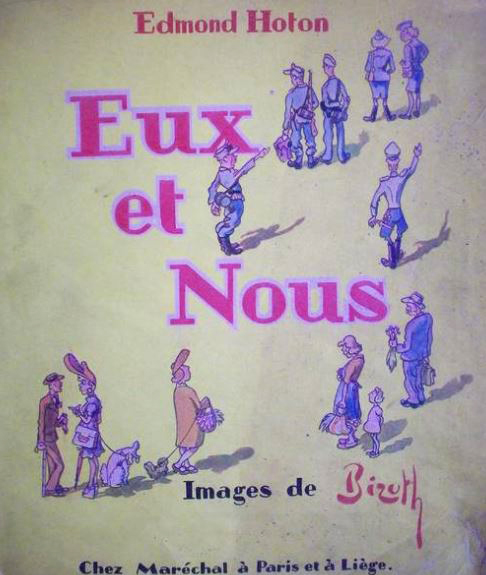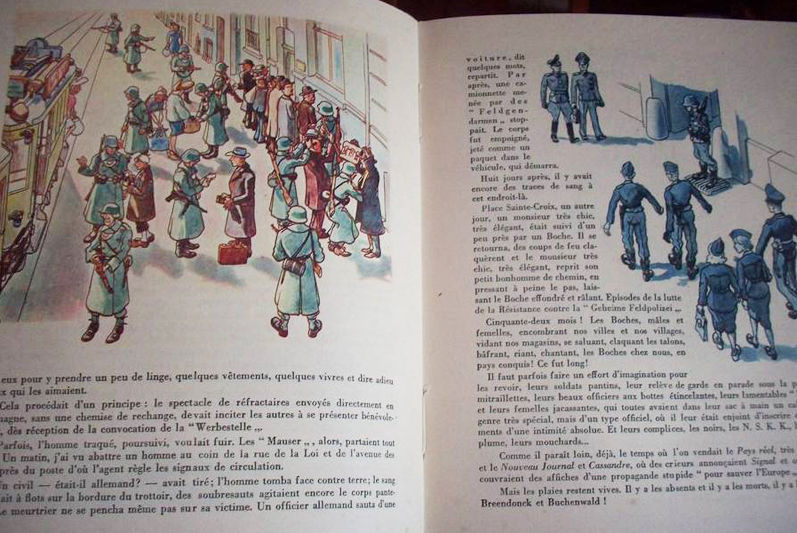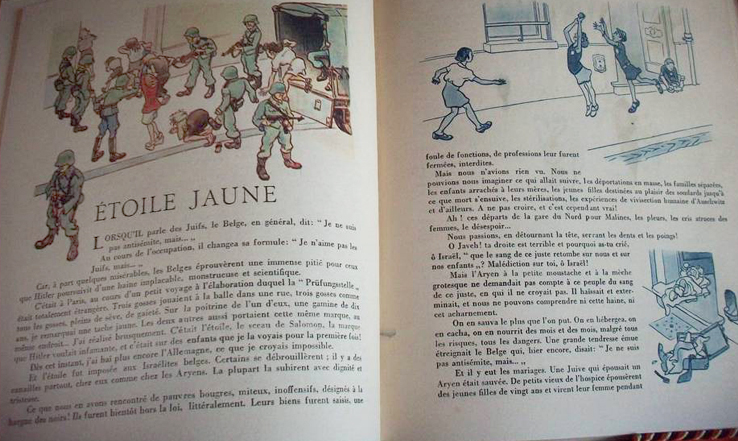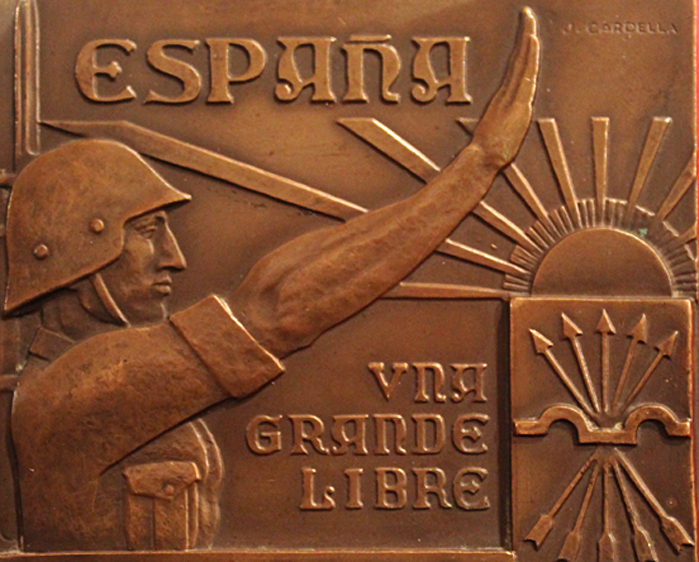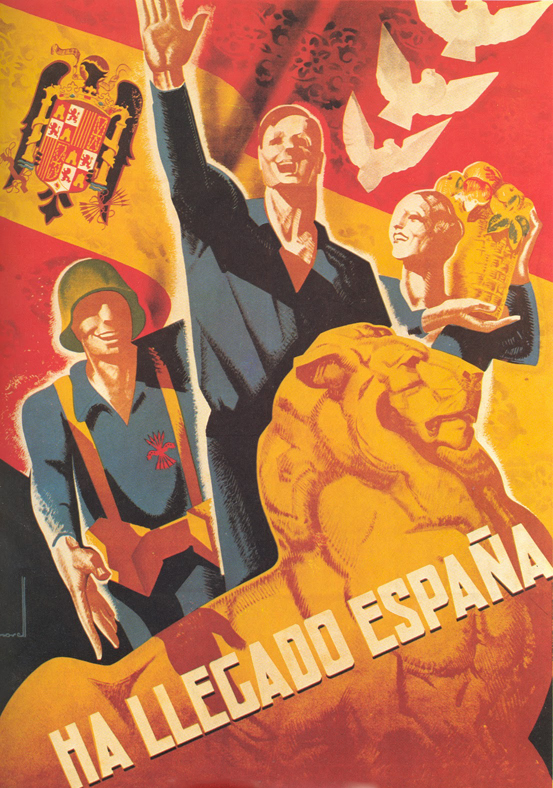Superb & Rare Spanish Fascist Nationalist Volunteer Award of the Spanish Civil War Awarded to Edward Hoton
Detailed in relief with a Fascist soldier giving the fascist salute, and the symbol of the fascist Falange [a group of arrows]. There were numerous foreign volunteers to both sides of the Spanish Civil War, in fact for many, especially the German Condor Legion, it was the rehearsal for WW2, and this was awarded to a fascist supporting foreign volunteer called Edward Hoton. A most high quality plaque medallion. Awarded to Edmond Hoton, by the Falange Española Tradicionalista y de las Juntas de Ofensiva Nacional Sindicalista (FET y de las JONS) the Traditionalist Spanish Phalanx of the Committees of the National Syndicalist Offensive. It was the sole legal party of the Francoist dictatorship in Spain. It emerged in 1937 of the merger of the Carlist Party with the Falange Española de las JONS. With the eruption of the Civil War in July 1936, the Falange fought on the Nationalist side against the Second Spanish Republic. Expanding rapidly from several thousand to several hundred thousand, the Falange's male membership was accompanied by a female auxiliary, the Sección Femenina. Led by José Antonio's sister Pilar, this latter subsidiary organization claimed more than a half million members by the end of the war and provided nursing and support services for the Nationalist forces.
The command of the party rested upon Manuel Hedilla, as many of the first generation leaders were dead or incarcerated by the Republicans. Among them was Primo de Rivera, who was a Government prisoner. As a result, he was referred to among the leadership as el Ausente, (the Absent One). After being sentenced to death on November 18, 1936, Primo de Rivera was executed on November 20, 1936 (a date since known as 20-N in Spain), in a Republican prison, giving him martyr status among the Falangists. This conviction and sentence was possible because he had lost his Parliamentary immunity, after his party did not have enough votes during the last elections.
After Franco seized power on 19 April 1937, he united under his command the Falange with the Carlist Comunión Tradicionalista, forming Falange Española Tradicionalista y de las JONS (FET y de las JONS), whose official ideology was the Falangists' 27 puntos—reduced, after the unification, to 26. Despite this, the party was in fact a wide-ranging nationalist coalition, closely controlled by Franco. Parts of the original Falange (including Hedilla) and many Carlists did not join the unified party. Franco had sought to control the Falange after a clash between Hedilla and his main critics within the group, the legitimistas of Agustín Aznar and Sancho Dávila y Fernández de Celis, that threatened to derail the Nationalist war effort.
None of the vanquished parties in the war suffered such a toll of deaths among their leaders as did the Falange. Sixty per cent of the pre-war Falange membership lost their lives in the war.
However, most of the property of all other parties and trade unions were assigned to the party. In 1938, all trade unions were unified under Falangist command. The Conservative government of the UK maintained a position of strong neutrality and was supported by elites and the mainstream media, while the far left mobilized aid to the Republic. The government refused to allow arms shipments and sent warships to try to stop shipments. It became a crime to volunteer to fight in Spain, but about 4,000 went anyway. Intellectuals strongly favoured the Republicans. Many visited Spain, hoping to find authentic anti-fascism. They had little impact on the government, and could not shake the strong public mood for peace. The Labour Party was split, with its Catholic element favouring the Nationalists. It officially endorsed the boycott and expelled a faction that demanded support for the Republican cause; but it finally voiced some support to Loyalists.
Romanian volunteers were led by Ion Moța, deputy-leader of the Iron Guard ("Legion of the Archangel Michael"), whose group of Seven Legionaries visited Spain in December 1936 to ally their movement with the Nationalists.
Despite the Irish government's prohibition against participating in the war, around 600 Irishmen, followers of Irish political activist and Irish Republican Army leader Eoin O'Duffy, known as the "Irish Brigade", went to Spain to fight alongside Franco. The majority of the volunteers were Catholics, and according to O'Duffy had volunteered to help the Nationalists fight against communism. The medallion bears at the base, engraved and cast, Al Senor Edmond Hoton, Bruselas II Ano Triunfal [We believe this translates to, Mr Edmond Horton, Brussels, two triumphant years]. We have traced it to Edmond Hoton who was an author, living in German occupied Belgium during the war. We have shown some scenes from one of his books. If he was the medal winning nationalist volunteer in the Spanish Civil War, by the look of his cartoons, he may well have 'changed his colours' so to speak after experiancing the German occupation first hand from 1939 to 1944. 2.75 inches x 2.75 inches
Code: 20105


